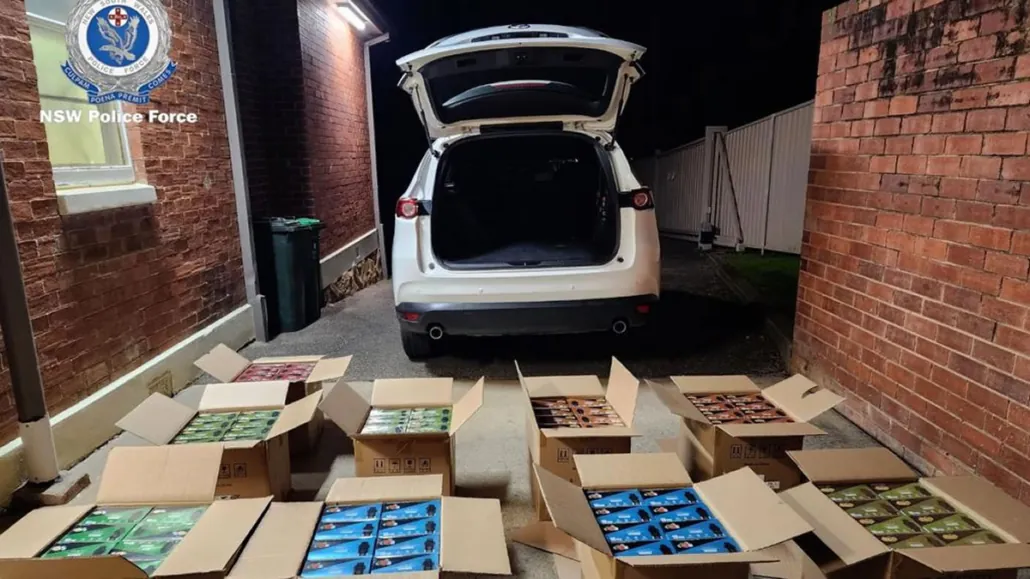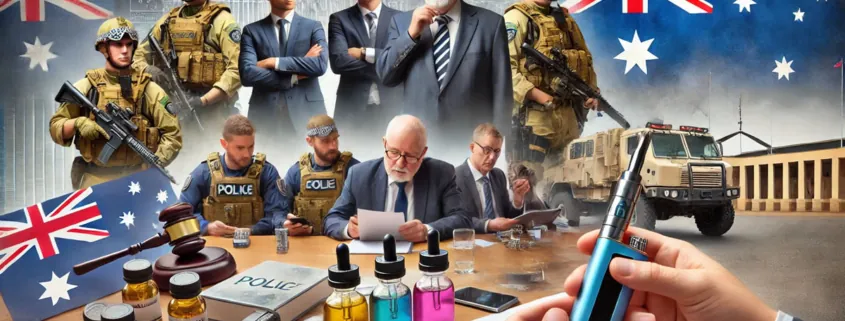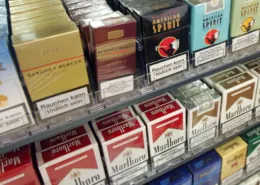Australia Strengthens Vape Regulations in 2024: A Comprehensive Review
Australia has been at the forefront of implementing stringent vape policies in recent years, and 2024 has seen a further tightening of regulations aimed at protecting public health, especially that of young people. This comprehensive review, compiled by Ecigator, highlights the key regulatory developments and events that have shaped Australia’s e-cigarette landscape since the beginning of the year.
China-Australia Cooperation in Combating Illegal E-Cigarette Smuggling
During the annual China-Australia Prime Ministers’ Meeting on June 17, Chinese Premier Li Qiang and Australian Prime Minister Anthony Albanese addressed the media and issued a joint statement that, for the first time, mentioned cooperation in border enforcement to combat illegal tobacco and e-cigarette smuggling. This inclusion underscores the growing importance of international cooperation in regulating e-cigarettes and marks the entry of e-cigarette regulatory cooperation into the high-level diplomatic cooperation framework.
January: Import Ban and Enforcement Measures
Australia kicked off the year by officially banning the import of all nicotine-containing disposable vapes, effective January 1, 2024. To enforce this ban, the government allocated over AUD 80 million (approximately USD 55 million) to support the Australian Border Force and the Therapeutic Goods Administration. The effectiveness of these measures was demonstrated on January 30, when officers seized 13 tons of illegal e-cigarettes worth AUD 4.5 million (USD 3 million) in the first large-scale seizure since the ban.
February: Concerns Over Black Market and Public Support for Regulation
In February, the Victoria State Parliament Budget Office estimated that the state’s illegal e-cigarette trade could be worth up to AUD 500 million, raising concerns about the potential for black market growth and organized crime. Meanwhile, The Guardian reported that Australians were concerned about the illegal sale of e-cigarettes and supported increased regulation and consideration of bans.

March: Licensing Requirements and Penalties for Violators
From March 1, 2024, all e-cigarettes, including refillable vape products, require an import license from the Office of Drug Control. Legally imported e-cigarettes can only be sold in pharmacies to users with a prescription. The Australian Department of Health introduced the “Therapeutic Goods and Other Legislation Amendment (E-Cigarette Reform) Bill 2024,” which includes criminal and civil penalties for illegal e-cigarette activities, with convicted violators facing up to seven years in prison.
April: United Efforts to Pass Anti-E-Cigarette Legislation
In April, Australian state health ministers jointly called on the federal parliament to pass anti-e-cigarette legislation to prevent youth nicotine addiction and reduce profit sources for organized crime groups. The Therapeutic Goods Administration (TGA) and Victoria Police seized nearly 500,000 illegal vape products worth over AUD 15 million in a joint operation.
May: International Cooperation and Debate Over Accessibility
May saw increased international cooperation, with the Australian Border Force meeting with Korean agencies to discuss preventing the importation of illegal e-cigarettes and drugs. Australian tobacco control expert Dr. Colin Mendelsohn argued that the prescription model for purchasing e-cigarettes leads consumers to turn to the black market, fueling crime, and suggested that e-cigarettes should be as accessible as cigarettes.
June: Nationwide Anti-E-Cigarette Campaign and Seizures
In June, the Australian government announced an investment of AUD 63.4 million (approximately USD 41.7 million) in advertising campaigns, using platforms like TikTok for the first time to communicate the dangers of e-cigarettes to the public. This marks the first nationwide anti-smoking campaign in ten years, aimed at addressing the rising rate of e-cigarette use among teenagers. New South Wales police also seized over 20,000 illegal e-cigarettes in three highway raids, arresting two Chinese citizens suspected of illegal handling and possession of criminal proceeds.
Conclusion
Australia’s vape regulatory landscape has undergone significant changes in 2024, with the government implementing a range of measures to protect public health and combat the illegal trade of e-cigarettes. From import bans and licensing requirements to increased penalties for violators and nationwide anti-e-cigarette campaigns, these efforts demonstrate Australia’s commitment to curbing the use of e-cigarettes, particularly among young people.
As international cooperation in vape regulation continues to grow, as evidenced by the inclusion of the issue in the joint statement of the China-Australia Prime Ministers’ Meeting, it is clear that addressing the challenges posed by e-cigarettes requires a coordinated global effort. Australia’s increasingly stringent policies serve as an example of the steps countries can take to prioritize public health and combat the illegal e-cigarette trade.
- Cambodia: Phnom Penh Bans Smoking & Vaping on “Walk Street” - August 16, 2025
- Mexico City Congress Approves Ban on Vapes & E-Cigs - August 16, 2025
- Is It Illegal to Vape or Smoke While Driving in Minnesota? - August 15, 2025








